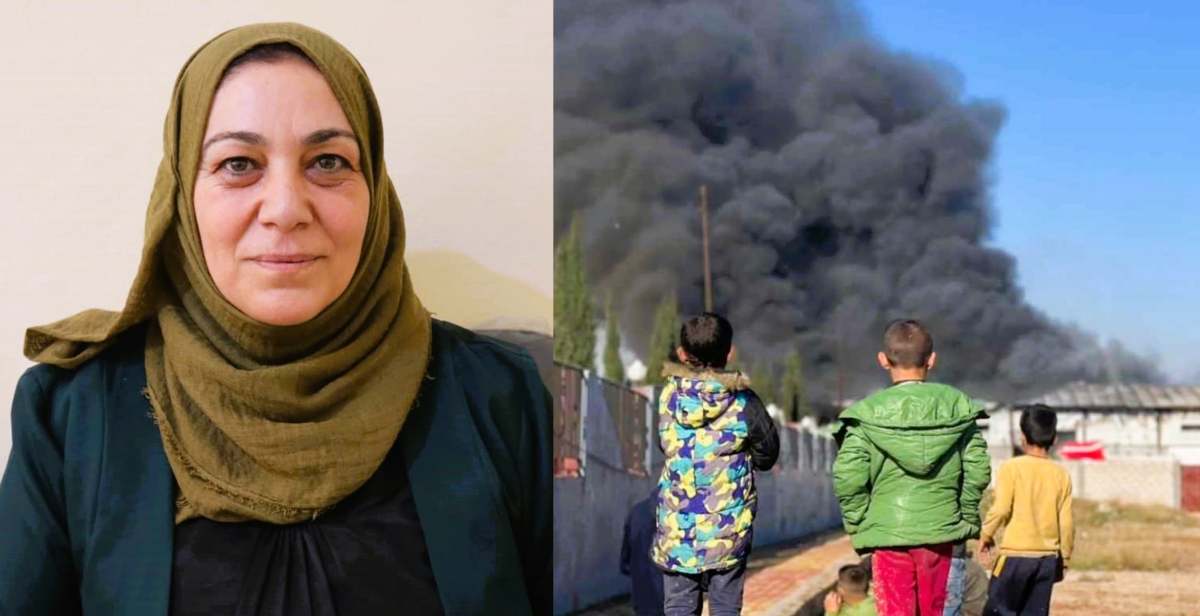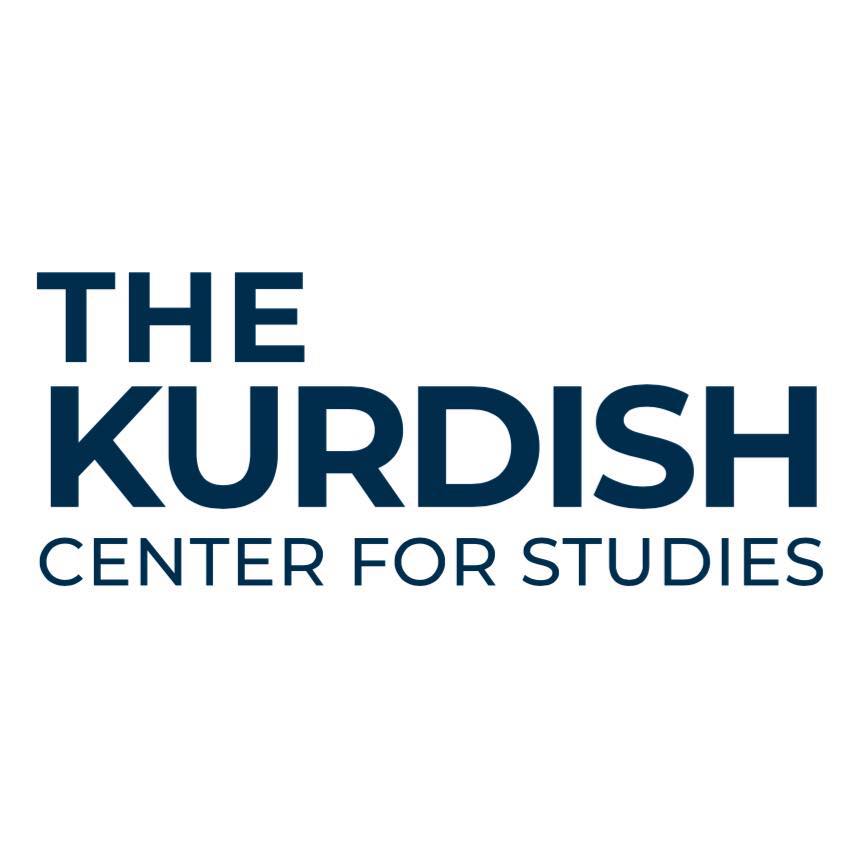Rojava Education Co-Chair: Turkey is Bombing Our Schools
By KCS Research Team in Rojava
KCS conducted an exclusive interview with Semira Hac Eli, the co-chair of the Ministry of Education for the DAANES (Democratic Autonomous Administration of North and East Syria) – commonly referred to as Rojava. In the interview, she discussed the impact of the latest bombardments by the Turkish state, which began in October, their ongoing targeting of civilian infrastructure such as schools, and the tragic situation of students.
The October 5th attacks by the Turkish state deliberately targeted essential infrastructure such as water, gas, and electricity stations, sanitation and water purification plants, schools, hospitals, roads, and oil fields. While some schools were actively targeted, the number of students affected as a result of the airstrikes was far greater, as the lack of water, electricity, and heating resulted in the closure of many schools. A large number of people were also displaced or forced away from their homes while a water crisis occurred, resulting in further upheaval, uncertainty, and fear of a rising health pandemic. As a result of the bombardments, the Ministry of Education in the DAANES announced that schools would be closed for the rest of the 2023 year due to the colossal loss of essential infrastructure due to the Turkish bombardments.
As this interview was being finalized, Turkey engaged in another round of devastating bombardments, which killed 8 people and left dozens injured, including targeting a Doctor’s Without Border’s hospital in Kobanê.
It is clear that Turkish attacks on the region will continue, and the deliberate policy of targeting essential and life-affirming infrastructure such as water, electricity, and health infrastructure will be actively targeted. This interview is an attempt to highlight the impact of the bombardments on the children and minors in the region. But as the interview highlights, unless the Turkish bombardments cease, life cannot be normalized, safety and security cannot be secured, and waves of people will feel justified in escaping the region. This is significant because this is the military objective of Turkey: to drive the Kurds away from northern Syria (Rojava) so they can ethnically cleanse the region before occupying and annexing it for themselves (as they already have done in Afrin and Serê Kaniyê etc).
How have the educational institutions been affected by the October bombardments by Turkey? What has been the scope of the damage caused?
The northern and eastern regions of Syria are constantly attacked by the Turkish state, be it through planes, drones, or air strikes, among other weapons. Sometimes the level of attacks increases, like in October, when the Turkish military mostly targeted the border areas with the might of all their weapons. Undoubtedly, in the case of bombings and air strikes, there will be a negative impact on education in the border areas and near the occupied areas.
As a result, schools will be closed, students will be deprived of the right to study, the infrastructure of the educational buildings in these areas will most often be destroyed, and other essential infrastructure such as electricity and water will be damaged. These infrastructures urgently need to be rebuilt before schools can resume teaching.
For example, a school was completely destroyed in the Cizîre region, and two students were martyred in the Euphrates region as a result of the bombing by the Turkish state. In the border areas, the number of damaged schools reached 48.
What are the current numbers of students negatively affected as a result of the Turkish airstrikes and bombardments?
The number of students who were deprived of the right to study due to the bombings of the Turkish state was close to 10,000. These are students across all sectors of the education system, including primary and high school as well as university students. Because the bombardments were so widespread across the physical and necessary infrastructure, the process of rebuilding these sectors is going to be lengthy.
During the Covid-19 pandemic, students were forced to rely on online teaching and classes as an alternative. Is it possible that students who have been negatively affected can continue their education online? Why/why not?
When the COVID-19 pandemic spread in our regions, the Board of Education and Learning of North and East Syria and all the educational boards and committees of the Autonomous and Civil Administration endeavored to take advantage of the existing facilities in order to continue the progress of education through the internet. Therefore, they started recording the lessons and classes, which were published live throughout the Rojava and Manbij regions through social media pages and YouTube. These online lessons continued even after the end of the COVID-19 pandemic, so that education and learning could be accessible to the students wherever they were and they could continue their studies under any circumstances.
As a result of the recent bombardments, online education cannot and is not able to have a long-term direct place in schools and it will have a negative impact on the level of education and society. The lack of face-to-face interaction between students and teachers is a negative outcome. Having the benefit of social interactions and face-to-face teaching has many social and moral values. Additionally, because important infrastructure such as electricity stations is affected, many students are not able to access online classes or the internet either.

Hundreds and thousands of people have been displaced from Afrin since 2018 as a result of the Turkish invasion and annexation of the region. Many of the displaced have been housed in the Shahba region. Yet, students in this area also face many challenges. Can you highlight what struggles these specific groups of students face?
In 2018, as a result of the occupation of the Turkish state, hundreds of thousands of people were forced to migrate away from Afrin, and many of them settled in villages and camps in the Shahba region. In fact, the Shahba area is going through a very difficult situation due to the regime forces’ embargo on the area. The Turkish occupation and its mercenaries’ acts of violence continue; schools are destroyed, books are not provided, school needs are not available and it is difficult for us to provide them with their basic educational needs as well. Likewise, there is no consistent electricity, water, fuel, or health facilities. As a result, without safety and security and basic infrastructure and supplies, there is no suitable ground for education. Nevertheless, 93 schools are open in the Shahba region, while the number of students is 14,112 and the number of teachers is 881.
What other challenges exist for students and their education in the region?
The difficulties of the educational field are also the difficulties of all related institutions in the DAANES, whether they are students or teachers. For example, on the level of school construction, the construction and repair of schools are required due to the lack of schools and their non-preparation on the part of the staff. On the other hand, the lack of electricity, water, and health centers and their access in schools, the provision of textbooks, and the availability of and preparation of teachers in such a difficult environment are all serious and ongoing issues. As a result, in general this year, the general economic situation has directly and severely affected the students and their education.
What have been the long-term effects of the attacks by Turkey on the education of students in the region?
The attacks of the Turkish state have a long-term impact on students from a psychological and social point of view because they create mental and physical insecurity and will affect the students’ capacity to access education and to learn. Also, as a result of the bombardment of the area, students are in a state of constant fear, which is not conducive to learning and education.
How can the international community or Kurds in Europe and the West help to support students in the region?
Kurds in the diaspora are requested to explain to the international and Western community, in particular, the situation in the northern and eastern regions of Syria, as well as the situation in the education field. They should point out the needs, difficulties, and psychological, social, and educational damages that arise as a result of the attacks by the Turkish state. Additionally, it is important to develop contacts with international institutions working in the fields of education to support learning in the north and east of Syria with their experience.




Comments are closed.